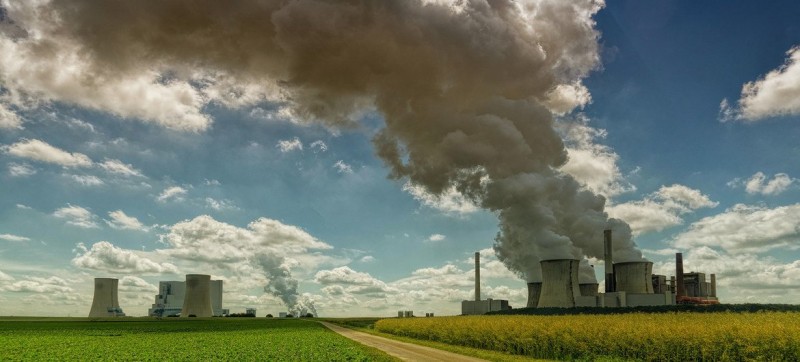Unsplash/Johannes Plenio Carbon dioxide levels and other greenhouse gas concentrations, continued at record levels, despite the economic slowdown caused by the COVID-19 pandemic.
The landmark decision comes as heat-trapping greenhouse gas concentrations are at record levels – “higher than at any time over the last 800,000 years”, WMO warned.
Tweet URL
Data from Earth and space
The new Global Greenhouse Gas Watch will combine observations from Earth and from space with modelling, to fill critical information gaps. It will build on WMO’s experience in coordinating international collaboration on weather prediction.
The agency said that the exchange of data will be “free and unrestricted”, in support of the Paris Agreement on climate change.
According to WMO, between 1990 and 2021, the warming effect on our climate from the main greenhouse gases, carbon dioxide, methane and nitrous oxide, rose by nearly 50 per cent.
“We know from our measurements that greenhouse gas concentrations are at record levels”, said WMO Secretary-General Petteri Taalas. “The increase in carbon dioxide levels from 2020 to 2021 was higher than the average growth rate over the past decade and methane saw the biggest year-on-year jump since measurements started.
Plenty still to learn
“But there are still uncertainties, especially regarding the role in the carbon cycle of the ocean, the land biosphere and the permafrost areas,” said Mr. Taalas.
“We therefore need to undertake greenhouse gas monitoring within an integrated Earth System framework in order to be able to account for natural sources and sinks, both as they currently operate and as they will change as a result of a changing climate. This will provide vital information and support for implementation of the Paris Agreement,” he said.
Lars Peter Riishojgaard, WMO Deputy Director for infrastructure, said the UN weather agency’s “decision on the generational challenge of climate change mitigation, is a historic step.
“Internationally coordinated global greenhouse gas monitoring open to all and operating under WMO’s policy of free and unrestricted exchange of data, will provide valuable, timely and authoritative information on greenhouse gas fluxes to the UNFCCC Parties (the UN climate change convention Secretariat), which will help them in their efforts to mitigate climate change”, he added.
Mr. Riishojgaard said there was “very strong support from the science community and private sector”, for the new monitoring project.

World Bank Landfills are a major source of methane emissions, and improved management can capture the methane as a clean fuel source as well as reducing health risks. Photo: World Bank/Curt Carnemark




Comments are closed, but trackbacks and pingbacks are open.